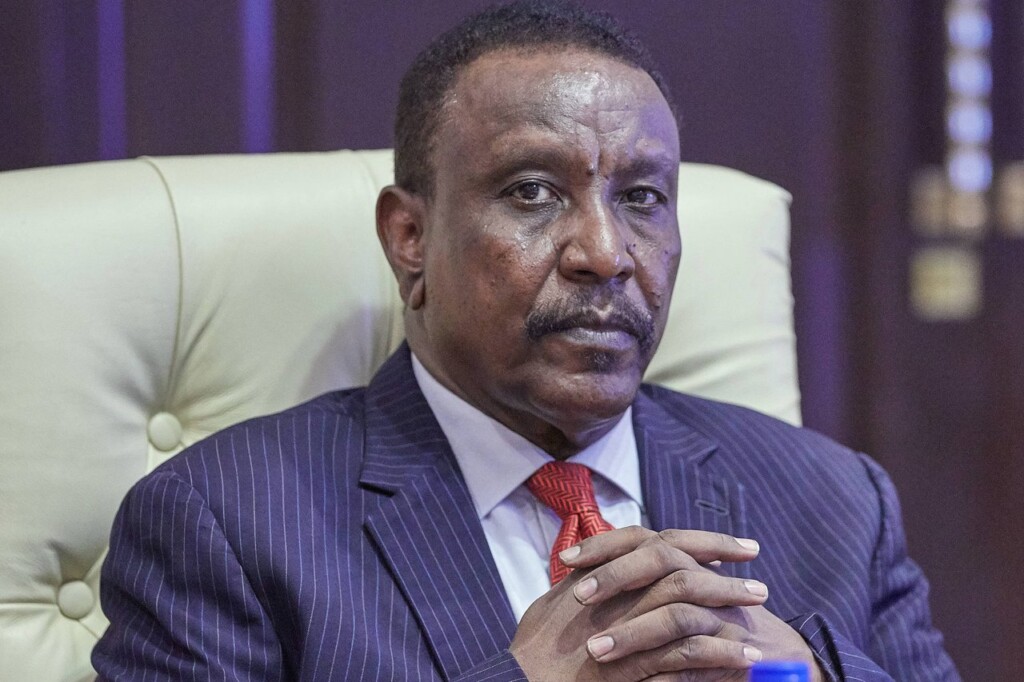Sudan: Yassir Arman expresses optimism about Final Agreement

Yassir Arman (File photo RD)
KHARTOUM –
The mainstream Forces for Freedom and Central Change (FFC-Central Council) alliance is organising a “deliberative conference” to advance the ongoing political process. Former rebel leader Yassir Arman is optimistic about a solution for the differences between the military institutions in the country.
The new conference aims to discuss the challenges of the transitional period and advance the ongoing political process with the various “forces of the revolution,” vice-president of the Sudanese Congress Party and spokesperson for the current political process, Khalid Omer Yousef, said on his Facebook page on Saturday.
A broad transition base is required for transitional period to be successful, for the Yousef, Cabinet Affairs Minister during the government of PM Hamdok, stated. “The political process should not to be confined to the top of the civil and military parties”.
The political process that began with the signing of the Framework Agreement by the ruling junta and more than 40 political opposition parties and groups on December 5 last year, is allegedly nearing completion. After conferences have been held on a number of ‘thorny issues’, a Final Agreement was to be signed on April 1, after which the military would hand over power to a newly formed civilian government that would lead the country during a transitional period of two years, followed by general elections. The signing of the final document however was postponed twice, due to differences between the Sudan Armed Forces (SAF) and the paramilitary Rapid Support Forces (RSF) over military reform and the merger of the two military institutions into one national army.
Yousef referred in this context to the dialogue conference on military and security reform in Khartoum in mid-March 15, and during which an agreement was reached on the principles of security and military reform.
“One of the main problems of the previous transitional experience [during the government of PM Hamdok (2019-2021)] is the security and military sector and its relationship to power. “There are many problems within the military sector that are inherited from the defunct regime, therefore it was necessary to tackle this issue in the political process despite its difficulties and complexity.”
The spokesperson further warned that “the project put forward by the elements of the defunct [El Bashir] regime is to destroy the political process and incite war between the SAF and the RSF to restore power [to them]. This leads to “polarised relations between the SAF and the RSF” while we need “a complementary relationship that leads to a single army”.
Meeting
Yousef reported as well that the civilian signatories to the Framework Agreement held a meeting at the residence of El Tahir Hajar, head of the Sudan Liberation Forces Alliance, on Tuesday, to discuss the current political situation.
The attendees received a copy of the draft Final Agreement prepared by the military and civilian signatories, to discuss outstanding issues, “except for the remaining technical issues of the security and military reform file”. Talks on this file “are witnessing tangible progress within the concerned technical committees”.
They agreed to arrange “an urgent meeting” with the military to discuss “the obstacles that delayed the signing of the final political agreement and ways to overcome them as soon as possible”.
The meeting as well discussed the need to halt “increasing activities of elements of the dissolved National Congress Party regime to sabotage the political process and ignite discord within the military establishment and the Sudanese society”.
‘Complex process’
Yassir Arman, founder of the SPLM-N-Democratic Revolutionary Movement and spokesperson for the FFC-CC, told Radio Dabanga on Saturday that they are working together with the military to solve the last pending issue in the security and military reform file.
“While it was agreed to build one army and integrate all forces into the armed forces, and on the foundations and principles for the reform, merger, and modernisation, the process of command and control, and how to reach a unified command still remains,” he said. “Both the SAF and RSF have still to consent on this.
“It is a complex process,” he said, referring to “attempts of affiliates of the ousted [Al Bashir] regime to disrupt and sabotage the political process”.
Power-sharing ratios
Regarding claims of the FFC-Democratic Block, a coalition of Darfur rebel movements and political parties and groups, to certain power-sharing ratios, Arman said that “Unfortunately, there are some movements that do not think in a strategic way.
“They are unable to see that there was a revolution and that the issue is not the sharing of power and wealth for the sake of the elites,” he explained. “The main issue concerns addressing the issues that crippled the Sudanese state in terms of wars that led to hundreds of thousands of refugees and displaced people, land and governance as well as security arrangements.”
Arman further said that the FFC-CC drafting committee would meet with lawyers and representatives of civil society organisations to finalise the text of the Transitional Constitutional Charter, based on the Constitutional Document developed by the Sudan Bar Association in August last year, and that has led to the signing of the Framework Agreement.
The chairman of Sudan’s Transitional Sovereignty Council and commander-in-chief of the SAF, Lt Gen Abdelfattah El Burhan, on Friday renewed the military institution’s stance of not allowing a return to pre-April 2019 and promised the imminent formation of a transitional government to end the period. He called for patience and national consensus to establish a civilian and democratic state.











 and then
and then